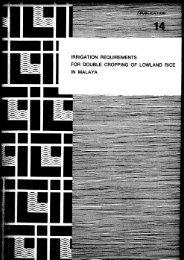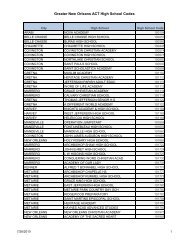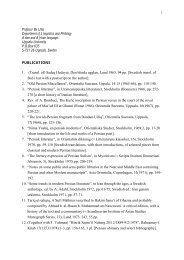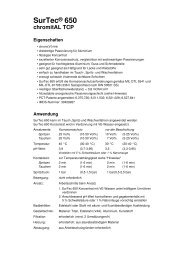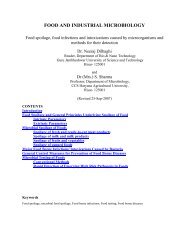On the Future of Indigenous Traditions - Munin
On the Future of Indigenous Traditions - Munin
On the Future of Indigenous Traditions - Munin
Create successful ePaper yourself
Turn your PDF publications into a flip-book with our unique Google optimized e-Paper software.
systems <strong>of</strong> <strong>the</strong> Adivasis used for <strong>the</strong>ir social administration and management <strong>of</strong> <strong>the</strong>ir<br />
resources. These traditional customary practices or laws <strong>of</strong> <strong>the</strong> Adivasi peoples exist<br />
and it is functional and relevant in today’s context which we will be exploring in <strong>the</strong><br />
following chapters.<br />
In this context, however, <strong>the</strong> first question that comes to mind is; when <strong>the</strong>re is a<br />
modern parliamentary democratic institution, why and how should a traditional<br />
customary institution be brought into <strong>the</strong> discussion or even thought <strong>of</strong> it to be as its<br />
substitute (at least for <strong>the</strong>ir own governance)? While discussing with many <strong>of</strong> my<br />
associates within <strong>the</strong> university and also in my field work, people commented that by<br />
choosing this topic, I am turning backwards by going into <strong>the</strong> traditional customary<br />
practice <strong>of</strong> governance. My emphasis in this <strong>the</strong>sis is not to look at <strong>the</strong> customary<br />
system or customary laws from an essentialist point <strong>of</strong> view, but to search in it for<br />
those feature that has given it <strong>the</strong> polities <strong>of</strong> democratic functioning, an egalitarian<br />
approach in <strong>the</strong>ir communitarian way <strong>of</strong> life including <strong>the</strong> inclusiveness <strong>of</strong> o<strong>the</strong>r<br />
communities with <strong>the</strong>m as its main components, and merits and usages today. The<br />
general impression however, on <strong>the</strong> contrary about those factors which have<br />
contributed to it’s negative viewing <strong>of</strong> this system (discussed in <strong>the</strong> later part) in<br />
which it is considered to being primitive in <strong>the</strong> face <strong>of</strong> modern state, <strong>the</strong>refore, many<br />
Adivasis have refrained to identify <strong>the</strong>mselves with it.<br />
1.1.3. Adivasi and non-Adivasi orientations: different rules<br />
The customary laws <strong>of</strong> <strong>the</strong> Adivasi communities are different from those <strong>of</strong> <strong>the</strong> non-<br />
Adivasi societies. Adivasis may be seen more as a community with a collective<br />
approach, both in relation to <strong>the</strong>mselves and <strong>the</strong>ir livelihood resources. For <strong>the</strong> non-<br />
Adivasis, individual specialisation or as individuals being a part <strong>of</strong> specialised<br />
occupational groups forms <strong>the</strong> basis <strong>of</strong> <strong>the</strong>ir society. Thus, <strong>the</strong> individual interrelation<br />
among <strong>the</strong> non-Adivasi society could ra<strong>the</strong>r be seen in connection to <strong>the</strong><br />
larger society to whom <strong>the</strong>ir services or occupations are aimed.<br />
The common forests and <strong>the</strong> lands which Adivasis have collectively use form <strong>the</strong><br />
basis <strong>of</strong> <strong>the</strong>ir customary system. The customary system/ laws are thus those accepted<br />
22





